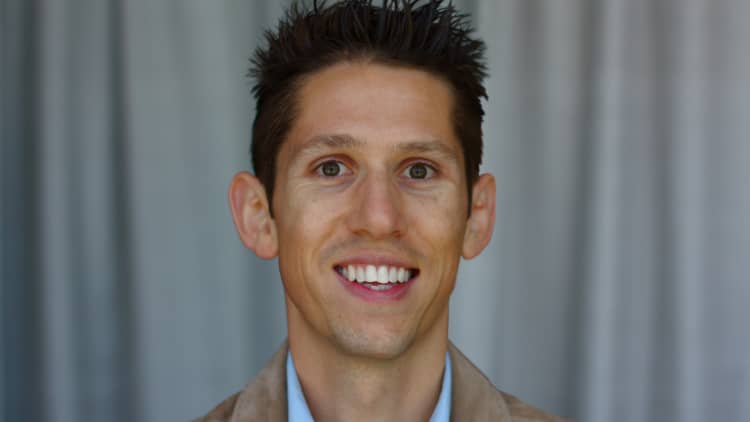It turns out it's not just a personal preference — you can learn a lot about a person by knowing whether or not they make their bed in the morning.
That's according to a recent survey of 2,000 Americans conducted by market research company OnePoll and commissioned by sleep research site Sleepopolis. The report, which was recently highlighted on the TODAY show, found that people who make their beds tend to be adventurous, confident, sociable and high-maintenance. Meanwhile, people who don't make their beds tend to be shy, moody, curious and sarcastic.
Further, bed-makers tend to be morning people who rise without alarm clocks. They're likely to work in health or technology-related fields. Those who don't make their beds, on the other hand, tend to be night owls prone to hitting the snooze button. They tend to work in business or finance.
So can becoming a bed-maker actually change your life? Retired U.S. Navy Admiral Seal William H. McCraven believes that picking up this daily practice can have a bigger impact than you might think.
In a commencement speech at the University of Texas, McCraven, who authored the book "Make Your Bed: Little Things Can Change Your Life...and Maybe the World," told students that the importance of making your bed every day was one of the most powerful lessons he learned during his time as a Navy SEAL.
"If you make your bed every morning, you will have accomplished the first task of the day,'' he said. "It will give you a small sense of pride, and it will encourage you to do another task, and another, and another. And by the end of the day that one task completed will have turned into many tasks completed."
He added that making your bed helps to reinforce the importance of life's finer details. He emphasized that "if you can't do the little things right, you'll never be able to do the big things right. And if by chance you have a miserable day, you will come home to a bed that is made — that you made."
McCraven's logic is supported by research from the National Sleep Foundation, which finds that people who make their beds in the morning tend to get better rest at night because they are falling asleep in a tidy, organized bedroom.
While Sleepopolis data suggests that making your bed can have a positive impact on your overall lifestyle, the same study found the habit does not affect the amount of sleep you get. According to the survey, both bed-makers and non-bed makers get an average of just six and a half hours of sleep per night, less than the seven to nine hours of sleep experts recommend.
Successful business leaders like Arianna Huffington, Jeff Bezos and Bill Gates argue that despite today's non-stop work culture, proper rest is crucial to your health.
"I can tell you with authority that when I'm exhausted, when I'm running on empty, I'm the worst version of myself," Huffington told CNBC Make It at a Fuel List event last year. "I'm more reactive. I'm less empathetic. I'm less creative. And all of us can testify to that."
After passing out at her desk in 2007 from sleep deprivation and exhaustion, Huffington committed to making self-care a priority. It's a "complete delusion," she said, to think you can be productive on very little sleep. She added, "I'm not saying that you can't succeed by burning out. But you can succeed much more effectively, and much more sustainably, and with much less damage to your health and your relationships."
Like this story? Subscribe to CNBC Make It on YouTube!
Don't miss: Arianna Huffington says she became truly successful when she quit one common bad habit



